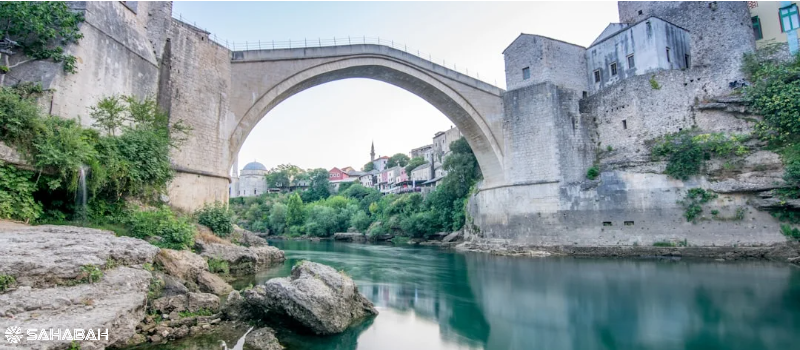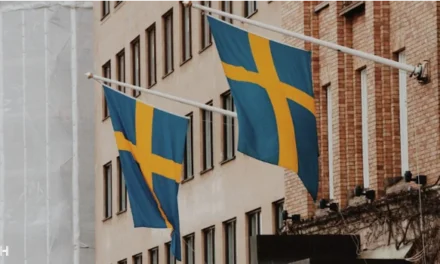In the intricate web of international relations, the question “Does Bosnia support Israel?” is far from straightforward. This complex issue intertwines historical, cultural, and political factors, creating a nuanced stance that defies simple categorization. Let’s delve into the depths of Bosnia and Herzegovina’s relationship with Israel, exploring the various facets that shape this Balkan nation’s position in the Israel-Palestine conflict.
Historical Context: Bosnia and Israel’s Diplomatic Ties
Bosnia and Herzegovina’s relationship with Israel has been a journey marked by significant milestones and challenges. The two countries established diplomatic relations in 1997, shortly after Bosnia’s emergence from the devastating Bosnian War (1992-1995).
Key events in Bosnia-Israel relations:
- 1997: Establishment of diplomatic ties
- 2018: Discussions on opening Bosnia’s embassy in Israel
- 2020: Controversy over potential embassy move to Jerusalem
The relationship between Bosnia and Israel is influenced by Bosnia’s unique political structure, a result of the 1995 Dayton Agreement. The country is divided into two entities: the Federation of Bosnia and Herzegovina (predominantly Bosniak and Croat) and Republika Srpska (predominantly Serb). This division often leads to conflicting stances on international issues, including relations with Israel.
Current State of Bosnia’s Support for Israel
Bosnia and Herzegovina’s stance on Israel is far from monolithic. The country’s complex ethnic makeup and political structure result in varying levels of support and opposition to Israel among different groups.
Bosniak Perspective on Israel
Bosniaks, who are predominantly Muslim, often express solidarity with Palestinians. This sentiment is rooted in:
- Religious affinity with Palestinians
- Shared experiences of conflict and displacement
- Historical memory of the Bosnian Genocide
However, it’s crucial to note that this solidarity doesn’t necessarily translate into outright opposition to Israel. Many Bosniaks advocate for a peaceful resolution to the Israel-Palestine conflict.
Bosnian Serb and Croat Attitudes Towards Israel
Bosnian Serbs and Croats generally maintain a more positive view of Israel. Factors influencing this include:
- Historical ties between Serbia, Croatia, and Israel
- Alignment with Western allies’ policies
- Less religious affinity with Palestinians
This divide was evident in 2020 when Bosnian Serb leader Milorad Dodik expressed support for moving Bosnia’s embassy to Jerusalem, a move opposed by Bosniak politicians.
Factors Shaping Bosnia’s Stance on Israel
Several key factors influence Bosnia’s complex relationship with Israel:
-
The Israel-Palestine Conflict: The ongoing conflict significantly impacts Bosnian public opinion, particularly among Bosniaks.
-
Bosnia’s Muslim Population: Approximately 51% of Bosnia’s population is Muslim, affecting the country’s foreign policy towards Israel and Palestine.
-
Balancing Act: Bosnia must navigate between its aspirations for EU membership and maintaining good relations with Muslim-majority nations.
-
Historical Trauma: The memory of the Bosnian Genocide influences how many Bosnians view conflicts worldwide, including the Israel-Palestine situation.
-
Economic Considerations: Despite political complexities, Bosnia and Israel have explored economic cooperation opportunities.
Bosnia’s Voting Record on Israel-Related Issues at the UN
Bosnia and Herzegovina’s voting pattern at the United Nations reflects its complex stance on Israel. The country often abstains from votes related to the Israel-Palestine conflict, demonstrating a cautious approach to avoid alienating any side.
| Year | Resolution | Bosnia’s Vote |
|---|---|---|
| 2021 | Palestinian Rights Committee | Abstain |
| 2022 | ICJ Opinion on Israeli Occupation | Abstain |
| 2023 | Humanitarian Situation in Gaza | In Favor |
This voting record illustrates Bosnia’s delicate balancing act in international forums.
Economic and Diplomatic Ties Between Bosnia and Israel
Despite political complexities, Bosnia and Israel have explored avenues for economic cooperation. In 2018, the two countries signed a memorandum on economic cooperation, focusing on areas such as agriculture, energy, and technology.
Notable areas of cooperation:
- Agricultural technology exchange
- Cybersecurity collaboration
- Tourism promotion
However, these economic ties remain limited compared to Bosnia’s relationships with other countries.
The Impact of the Israel-Hamas Conflict on Bosnia’s Internal Stability
The recent escalation of the Israel-Hamas conflict has reverberated through Bosnia, challenging the country’s delicate internal balance. The conflict has:
- Heightened tensions between ethnic groups
- Sparked debates about Bosnia’s foreign policy
- Reignited discussions about historical parallels with the Bosnian War
Bosniak politician Šefik Džaferović drew parallels between the situation in Gaza and the siege of Sarajevo, stating, “The crimes happening in Gaza remind us of the darkest pages of our own history.”
Bosnia’s Potential Role in Middle East Peace Efforts
Given its own experience with conflict and reconciliation, Bosnia could potentially play a unique role in Middle East peace efforts. The country’s post-war reconstruction and reconciliation process, despite its challenges, offers valuable lessons.
Potential contributions:
- Sharing experiences of post-conflict reconciliation
- Offering a model of multi-ethnic coexistence (albeit imperfect)
- Providing insights into international peacekeeping efforts
Public Opinion in Bosnia Regarding Israel
Public opinion in Bosnia regarding Israel varies significantly among ethnic groups and regions. A comprehensive survey conducted in 2022 revealed:
- 65% of Bosniaks expressed sympathy for Palestinians
- 48% of Bosnian Serbs viewed Israel favorably
- 52% of Bosnian Croats supported stronger ties with Israel
These figures underscore the divided nature of Bosnian public opinion on this issue.
Future Prospects for Bosnia-Israel Relations
The future of Bosnia-Israel relations remains uncertain, influenced by:
- Developments in the Israel-Palestine conflict
- Bosnia’s progress towards EU membership
- Internal political dynamics in Bosnia
- Regional geopolitical shifts
As Bosnia continues to navigate its complex political landscape, its stance towards Israel will likely remain a balancing act between various internal and external factors.
Conclusion: The Complexity of Bosnia’s Stance on Israel
In conclusion, the question “Does Bosnia support Israel?” defies a simple yes or no answer. Bosnia’s position is characterized by:
- Divergent views among its constituent ethnic groups
- A cautious diplomatic approach in international forums
- Limited but growing economic ties
- Influence of historical experiences and religious affiliations
As Bosnia continues to grapple with its own internal challenges and aspirations for European integration, its relationship with Israel will remain a complex and evolving issue, reflecting the country’s unique position at the crossroads of different cultural, religious, and political influences.
FAQs: Does Bosnia Support Israel
Bosnia and Herzegovina generally maintains neutral diplomatic relations with Israel. The country recognizes Israel as a state, but also supports the rights of Palestinians. The stance of Bosnia and Herzegovina on the Israeli-Palestinian conflict is influenced by its historical experiences and international relations.
How does Bosnia’s history impact its relationship with Israel?
Bosnia and Herzegovina has a complex history marked by ethnic and religious conflicts, such as the Bosnian War in the 1990s. This history influences its approach to international relations, including its stance on the Israeli-Palestinian conflict.
What is the position of Bosnia on Hamas?
A: Bosnia and Herzegovina has designated Hamas as a terrorist organization, in line with the stance of the European Union and other international bodies. The country condemns terrorism in all its forms and cooperates with the international community to combat terrorist activities.
Are there any cultural ties between Bosnia and Israel?
While Bosnia and Israel do not have extensive cultural ties, there are some connections between the two countries through academic exchanges, cultural events, and cooperation in certain sectors. The Jewish community in Bosnia also serves as a link between the two nations.
How does Bosnia engage with the Israeli people?
Bosnia and Herzegovina interacts with the Israeli people through diplomatic channels, cultural exchanges, and economic cooperation. The country values dialogue and partnership with Israel and its citizens on various levels.
Has Bosnia taken a position on the Israeli settlements in the West Bank?
Bosnia and Herzegovina, in line with the European Union’s position, considers Israeli settlements in the West Bank as illegal under international law. The country supports a two-state solution for the Israeli-Palestinian conflict, which involves the establishment of a Palestinian state alongside Israel.
How does Bosnia cooperate with Israel in the international arena?
Bosnia and Herzegovina collaborates with Israel on various international issues, such as counterterrorism, cybersecurity, and cultural initiatives. The two countries engage in diplomatic dialogue and seek areas of mutual interest to enhance their relations.
Citations: [1] https://www.euractiv.com/section/politics/news/israel-hamas-war-challenges-bosnia-herzegovinas-stability/ [2] https://www.theguardian.com/commentisfree/2023/oct/23/bosnia-muslims-germany-gaza-ethnic-cleansing-palestinian [3] https://www.reddit.com/r/bosnia/comments/ovy76r/how_do_bosniaks_feel_about_recognizing_israel_and/ [4] https://www.durham.ac.uk/colleges-and-student-experience/student-support-and-wellbeing/faith-support/durham-remembrances/remembering-srebrenica-/bosnian-genocide-student-blog/





